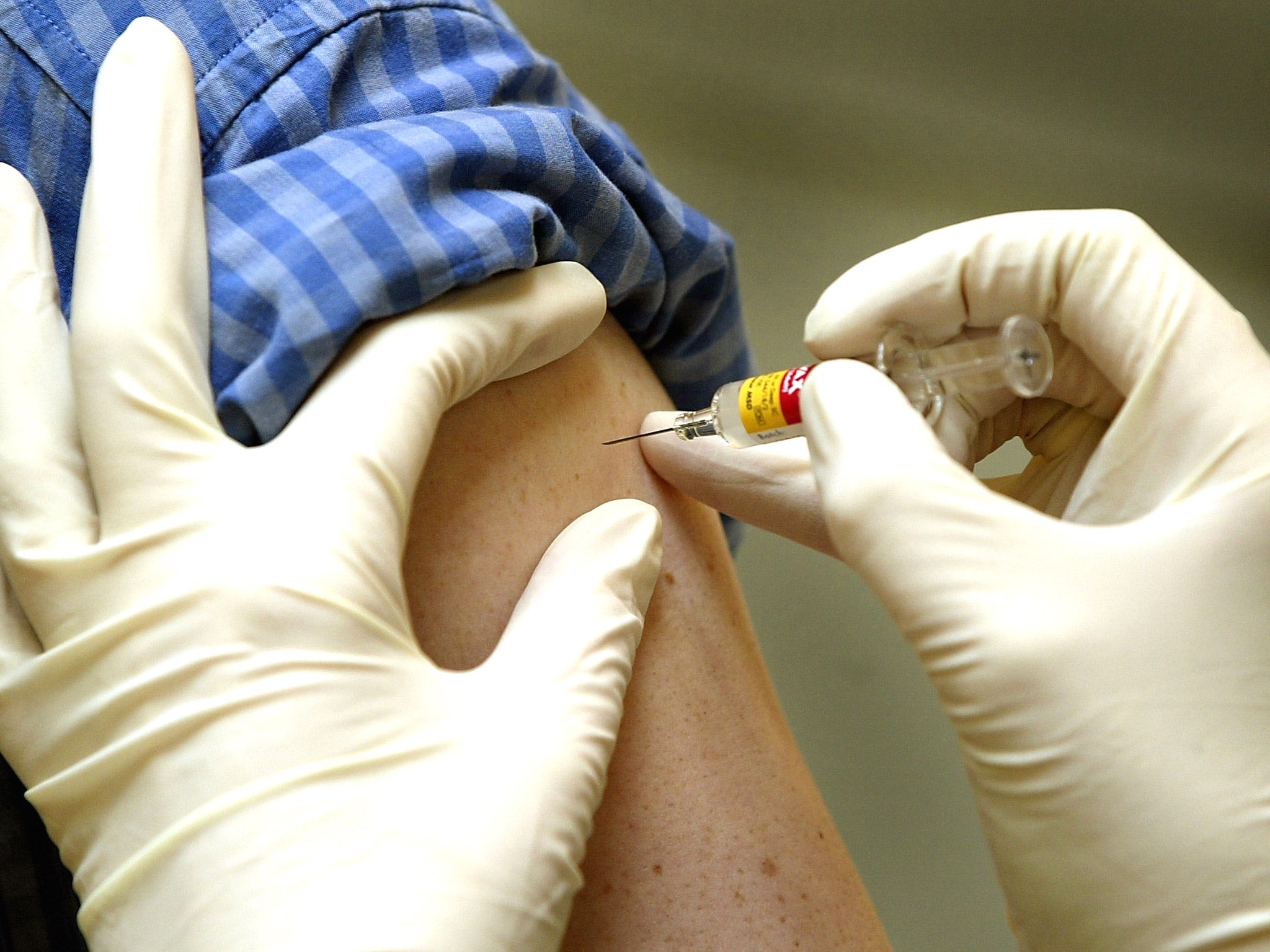Meningitis B: Britain to offer a nationwide vaccination programme against disease
The illness is the most common cause of bacterial meningitis that kills one in ten infected babies and leaves many more maimed for life

Your support helps us to tell the story
From reproductive rights to climate change to Big Tech, The Independent is on the ground when the story is developing. Whether it's investigating the financials of Elon Musk's pro-Trump PAC or producing our latest documentary, 'The A Word', which shines a light on the American women fighting for reproductive rights, we know how important it is to parse out the facts from the messaging.
At such a critical moment in US history, we need reporters on the ground. Your donation allows us to keep sending journalists to speak to both sides of the story.
The Independent is trusted by Americans across the entire political spectrum. And unlike many other quality news outlets, we choose not to lock Americans out of our reporting and analysis with paywalls. We believe quality journalism should be available to everyone, paid for by those who can afford it.
Your support makes all the difference.Britain will become the first country in the world to offer a nationwide vaccination programme against meningitis B, the most common cause of bacterial meningitis that kills one in ten infected babies and leaves many more maimed for life.
Parents and research charities welcomed the deal struck over the weekend between the government and the vaccine’s manufacturers which means that the first babies could be inoculated as early as this September in time for the next meningitis season.
Health secretary Jeremy Hunt said today that the British drugs company GlaxoSmithKline (GSK) had agreed to lower the price of the vaccine, called Bexsero, three weeks after it has acquired the rights to the product from its previous makers, the Swiss firm Novartis.
“We had a stand-off really for the best part of a year with the company that used to own this vaccine but since GSK has come on board they have reduced the price and that means we can go ahead this year with rolling out the meningitis B vaccine,” Mr Hunt said.
Although details of the vaccine’s final price are commercially confidential, it is believed to be in the region of £20 per shot, which is less than a third of the original list price. Babies will be vaccinated at two months, with follow up at 4 months and a booster at 12 months.
Last year, the government’s vaccine committee ruled that Bexsero was effective at preventing meningitis B in young children and that it should be rolled out as part of a national vaccination campaign, subject to a price that represented “fair value” to the NHS.
Chris Head, chief executive of the Meningitis Research Foundation, said that a meningitis B vaccine has been at the top of its agenda for decades and now vaccinating all babies rather than a few who were deemed to be at highest risk, is within sight.
“When this vaccine is introduced it will save lives and spare countless families the trauma of seeing a loved one die or become seriously disabled because of meningitis B,” Mr Head said.
Meningococcal B bacteria, a strain of Neisseria meningitides, cause rapid inflammation of the lining around the brain, which can lead to death within hours or days. It can also result in blood poisoning, multiple organ failure, amputation and death.
About 3,200 people each year develop bacterial meningitis – about half as many as 25 years ago when there were no vaccines at all – and most of these new cases are caused by the B strain.
Medical researchers said the deal with GSK was the breakthrough that everyone involved was hoping for as it now puts Britain in a strong position to prevent meningitis B in young infants with an effective vaccination strategy.
“This represents a milestone in the battle against bacterial meningitis. With the addition of the MenB vaccine, all the major forms of this dreadful disease are preventable,” said Professor Richard Moxon, a paediatrician at the University of Oxford.
“The implications for everyone, especially children and their parents, are far reaching. Once again, the UK is in the forefront of new initiatives to use the benefits of immunisation to improve the health and welfare of its people,” Professor Moxon said.
Myron Christodoulides, a reader in molecular bacteriology at Southampton University said the vaccine should have an immediate impact on the incidence of meningococcal B disease by reducing new cases by at least 70 per cent.
“It will be exciting to look back in a year or two and count the number of children’s lives that have been saved,” Dr Christodoulides said.
There are several vaccines against various other strains of meningococcal bacteria – the first was introduced more than 20 years ago. However, experts are concerned about a new strain, called W, which shows signs of spreading.
“It is neither the beginning nor the end of the story and, even for the B strain of meningococcus, this is expected to be only a partial solution,” said Adam Finn, professor of paediatrics at the University of Bristol.
“We also have an important new vaccine initiative in the pipeline to prevent cases of the rarer but rapidly rising W strain,” he said.
Matthew Snape, a vaccine expert at University of Oxford, said: “Developing a vaccine against meningitis B has been an enormous challenge, and it is great to see that this vaccine will now be available for all 2-month-olds in the UK. Importantly, this vaccine should not only protect against meningitis B, but also against a newly emergent meningitis W strain that is causing particularly severe infections.”
Join our commenting forum
Join thought-provoking conversations, follow other Independent readers and see their replies
Comments